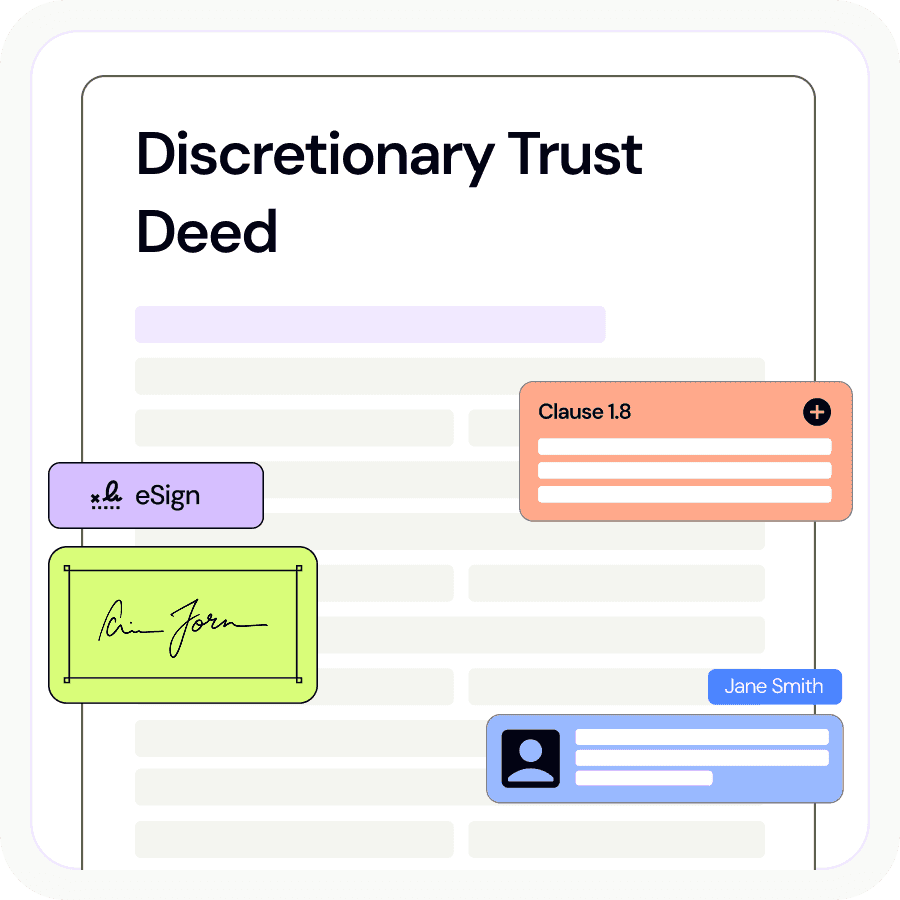A trust requires a trustee to hold and/or manage property for the benefit of third parties known as beneficiaries. They are useful in managing estates and ensuring that the settlor’s (creator of the trust) property is being used in the way the settlor wants, even after their death.
Different types of trusts have different purposes. For example, parents often hold money or property for their children in a discretionary trust. Such trusts allow them to change the amount beneficiaries receive at their discretion. However, not all trusts can be changed or revoked at will.
Revocability
Revocable trusts are trusts that settlor of the trust can change at their will. They can remove or add beneficiaries, or reduce the benefit beneficiaries receive or alter the trust deed or terminate it. These types of trusts essentially allow the settlor to control the property. Under section 102 of the Income Tax Assessment Act 1936, where:
- The settlor has control over the trust and receives benefits of the income produced by the trust or;
- The income the trust makes is for the settlor’s children who are under the age of 18
The trustee must pay tax on the income the trust produces.
Irrevocable Trusts
Irrevocable trusts are trusts that cannot be changed by the settlor after they have been formed. The trustee has full control over the trust and must act according to the guidelines in the trust deed. There is no mention of revocation rights for any party in the trust deed. The only way to alter the trust (or revoke it) is for all the beneficiaries to agree to do so.
An example of this type of trust is a testamentary trust (also known as a will). A testamentary trust only comes into effect after the death of the settlor, meaning that the settlor has no power to alter it because they would no longer be alive.
Advantages
The main advantage of having an irrevocable trust is that it allows the settlor to revoke legal ownership of the property from their estate, meaning it won’t be part of the settlor’s taxable estate. This means they also won’t pay taxes on any income the property generates. The trustee will, however, be liable to pay taxes for the income the trust property generates.
Property held in an irrevocable trust won’t be available to creditors in case of bankruptcy because the property is no longer theirs. However, this is only the case if the transaction was genuine and not to avoid creditors. When a settlor suspects bankruptcy and chooses to transfer all their assets into an irrevocable trust, a court may order for that transaction to be reversed.
Disadvantages
The obvious disadvantage of an irrevocable trust is that the settlor will not have any control over the trust once they create it. They won’t be able to change their mind at a later stage.
Furthermore, they can be very expensive to set up and maintain and often involve complex terms. It is always best to speak with an Estate Planning Lawyer for personalised advice on what type of trust is correct for you.
Don’t know where to start? Contact a LawPath consultant on 1800 529 728 to learn more about customising legal documents and obtaining a fixed-fee quote from Australia’s largest legal marketplace.







